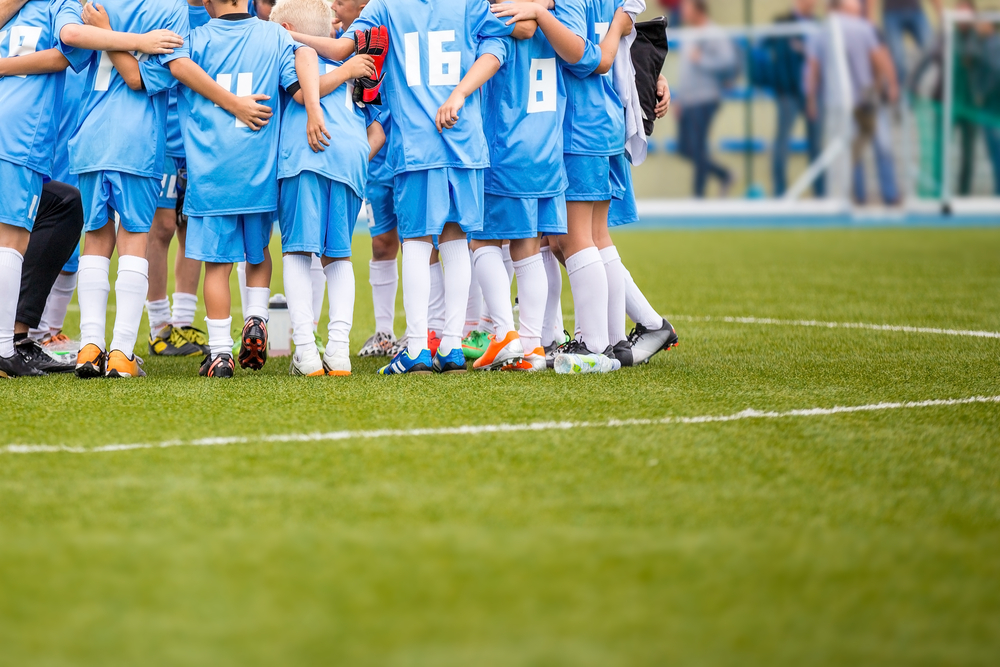Your page will be ready in a few seconds...

Why we should care about preserving our community sport organisations?
There is a general acknowledgment that sport is good for us, and now, there is a growing body of research that explores social impacts that community sport organisations generate within their local communities.
These studies have yielded extensive evidence for positive impacts in areas of physical health, mental health, educational development, social capital development and crime reduction.
It has also been found that the impact of participating or volunteering in sport is more pronounced for women, older people and at-risk youth, and hence, sport can be a very effective tool to counter the inequalities that exist in our society.
In fact, just in the UK, community sport helps generate over £71 billion a year in social value, and a further £13.8 billion a year in economic value.

However, 2/5 of our community sport organisations are struggling to maintain their financial sustainability and need our help to stay resilient, particularly in the current economic climate.
So why should we care?
Health Improvement
Sport and physical activities can have many positive impacts on our health. Studies show that they can help prevent chronic diseases like heart disease, diabetes, cancer, and osteoporosis.
Adults who regularly participate in moderate-intensity sports have a 20% lower risk of premature death from any cause. Women who are active in sports have an even greater risk reduction of 31%! For children, regular physical activity can help prevent chronic diseases and build a strong immune system.
There is also evidence that participating in sports and social interactions associated with them can have a positive impact on mental health. It can reduce stress, increase positive feelings, and improve overall wellness. For children, regular physical activity can reduce stress and depression, and improve self-esteem and body image.
Even small improvements in fitness can have significant risk reduction benefits for all participants.
Educational Development
Participating in sport can have significant impact on the educational capability, for children and young people. Regular participation in sport and physical activity has been linked to positive affect, optimism, self-esteem, and self-efficacy, which can have a greater effect on children and young people.
These impacts are crucial for effective human development and can have implications for adult life.
Research has shown that engagement in sport and physical activity can lead to improvement in cognitive ability, psychosocial development, educational attainment, and school engagement.
In school-age children, regular participation in sport and physical activity has been linked to better cognitive performance, including improvements in information processing, relational memory, attention, and executive function.
These educational outcomes achieved through sport are considered intermediate outcomes that act as stepping-stones toward greater school engagement, educational achievement, and progression.
Volunteering in sport has also been found to generate multiple educational benefits for young people, including skill development in areas such as leadership, communication, and teamwork.
A study found that participation in sport and volunteering in sport provides added value to university graduates through technical skill development, boosting their employability and earnings.
Specifically, the study found that those who engaged in sport volunteering roles gained an earnings premium of between £4,264 and £5,616 per annum.
Furthermore, graduates who engaged in volunteering in sport experienced lower periods of unemployment, and employers favoured employees who had previous engagement with sport.
Social Development and Crime Reduction
Research has shown that participating in sport can help develop social connections, promote collective community action, and reduce social tensions. The extent of these benefits depends on how the sports programs are structured and the broader social issues that exist.
The social benefits of sports are often related to the mental health and psychological benefits that come from participating, such as self-esteem, cooperation, and a sense of belonging.
These social benefits can be grouped into three categories: bonding capital (building social connections), bridging capital (developing understanding and attitudes towards others), and linking capital (establishing institutional networks and social support structures).
Sport can generate social capital through two main dimensions: social networks and collective identities. Sport volunteering, in particular, has been identified as a form of social capital, as it promotes community action and develops social connections.
Sport has been found to have a relationship with reducing crime, especially among youth who are at risk, by fostering pro-social behaviour, reducing delinquency, and decreasing the risk of recidivism.
However, the type of sport participation affects the relationship with juvenile delinquency, with heavy-contact sports associated with increased commission of crime. If sport participation programs are specifically designed for the development of youth, they can control the relationship between sport and crime.
Overall, community sport organisations contribute positively to their local communities by generating these social impacts in tandem, and are crucial community assets that we need to help preserve and grow.
How SportFin helps preserve and grow community sport?
SportFin is helping community sport organisations harness data about their sport activities, participants and volunteers to evidence the positive social impact they are generating (through our unique impact correlations model).

This helps community sport organisations demonstrate and report impact in real-time – our market research has shown that this makes public funders and crowdfunders 50% more likely to fund a sport organisation and be willing to put in 3 times as much money!
Find out more about the social impact analytics tools SportFin provides here.
Want to learn more about SportFin?
You can find out more about SportFin through our website or our help center.
SportFin’s data collection and management tools are free to use for community sport organisations. You can get started straight away by creating an account here.
 SportFin
SportFin
